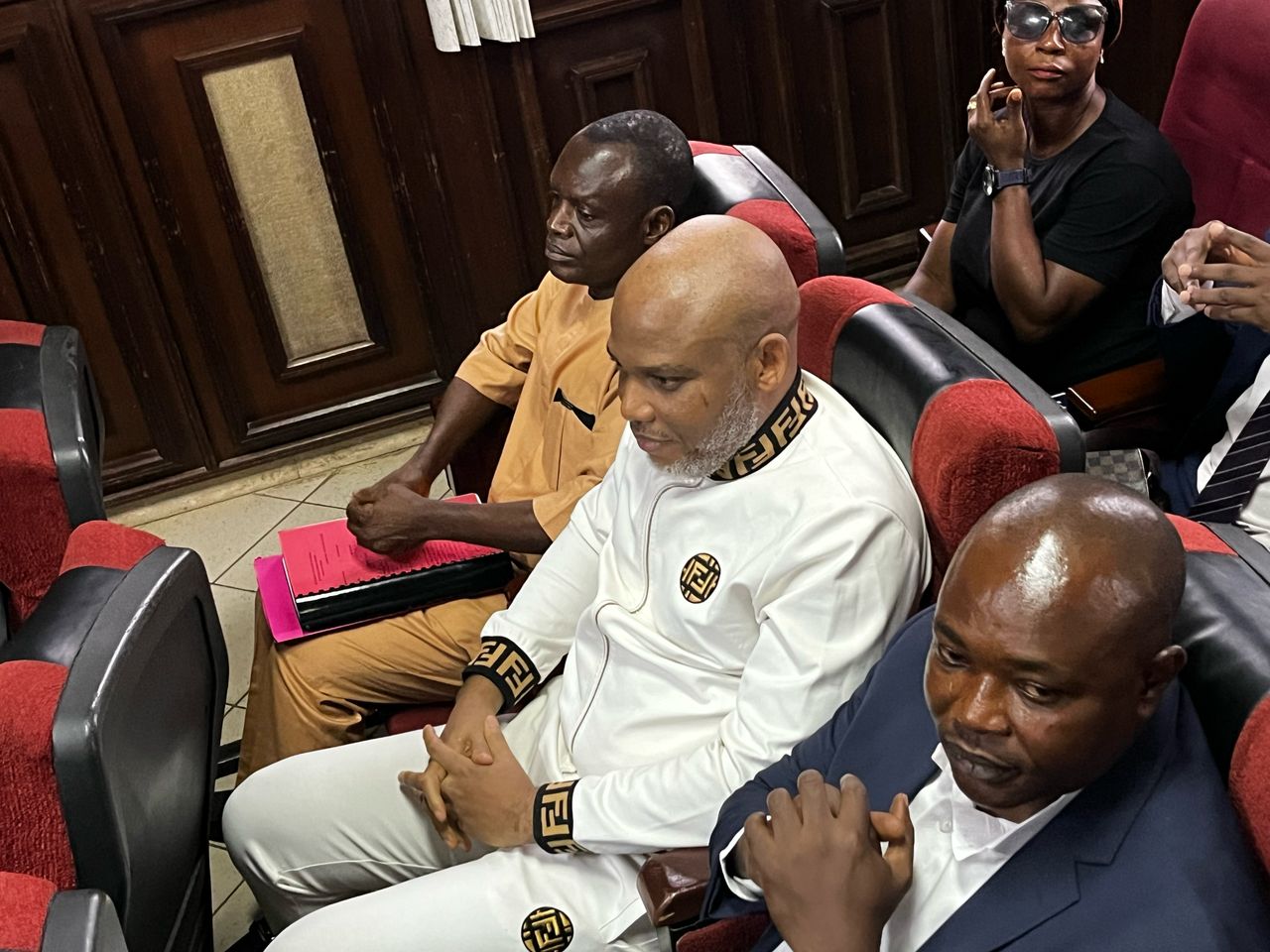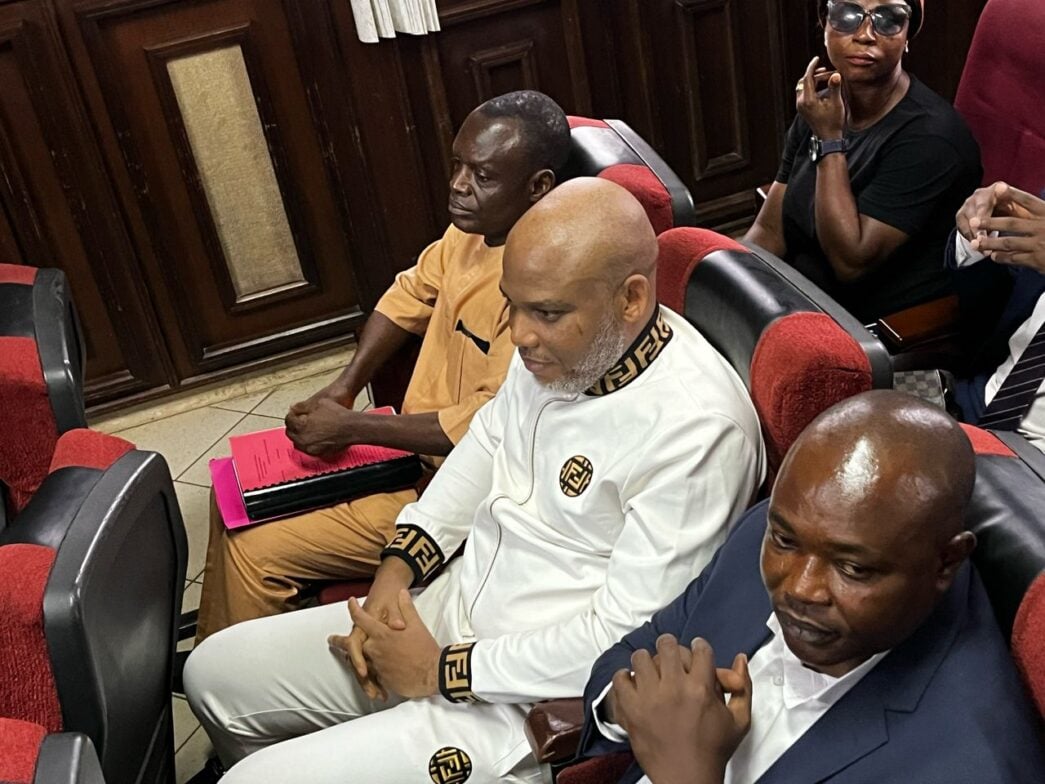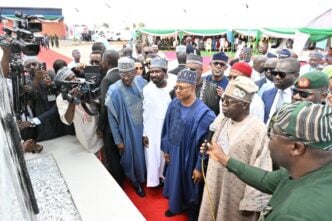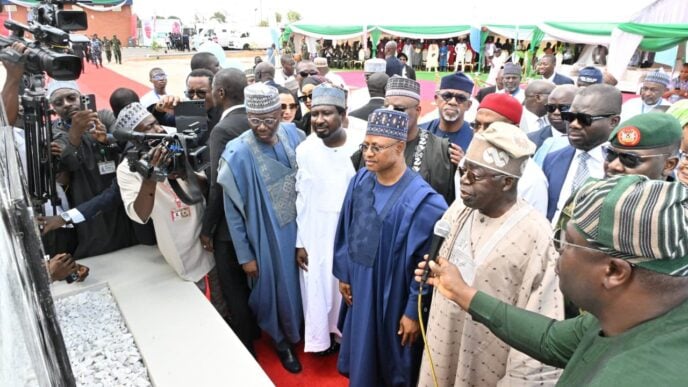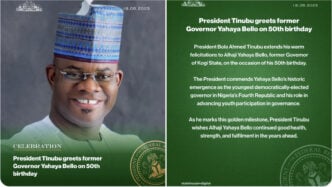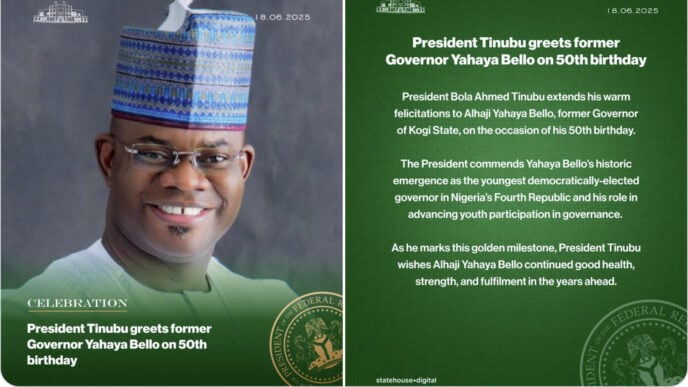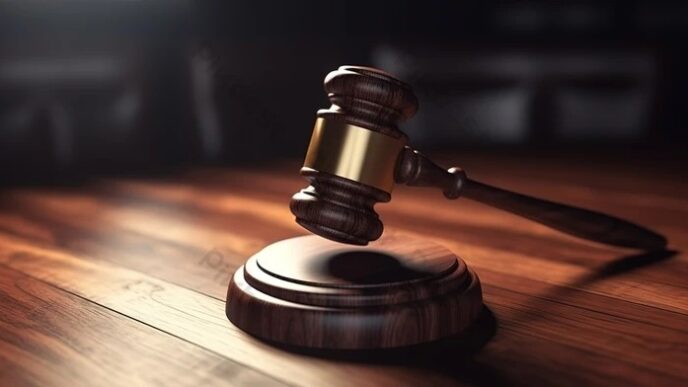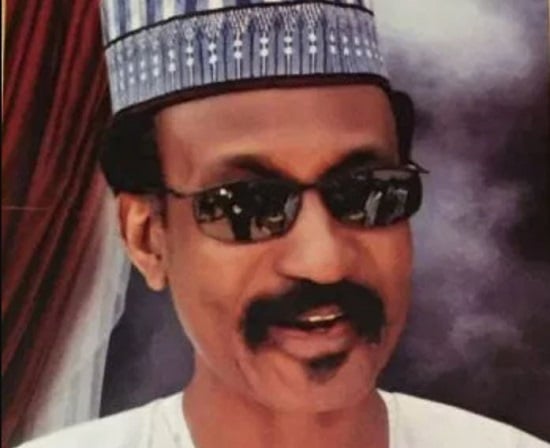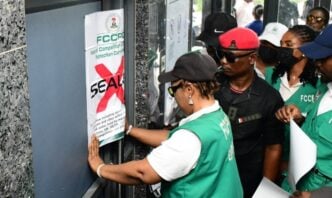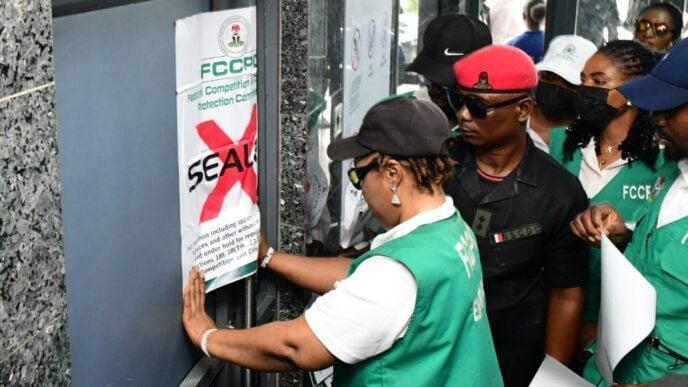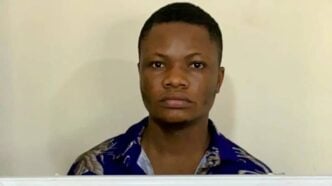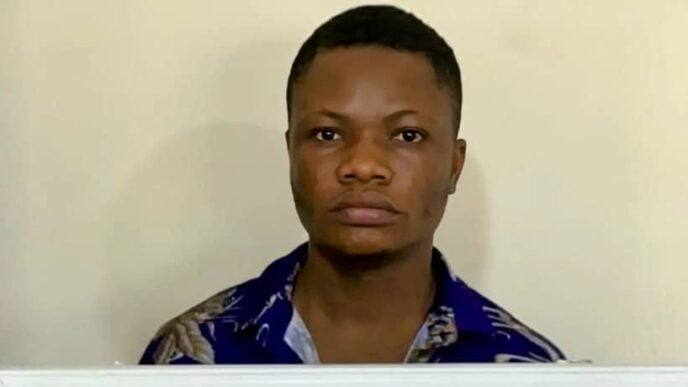Nnamdi Kanu (in white) in court | File photo
The federal government has closed its case in the trial of Nnamdi Kanu, leader of the Indigenous People of Biafra (IPOB), after calling five witnesses.
At Thursday’s session, Adegboyega Awomolo, lead counsel for the federal government, informed the federal high court in Abuja that the prosecution was satisfied with the evidence and exhibits presented so far. This came after the fifth prosecution witness (PW5) concluded his testimony.
In response, Kanu Agabi, lead counsel to the defendant, said the defence would be filing a no-case submission, arguing that the prosecution had not established a prima facie case against his client.
James Omotosho granted the defence 14 days to file its application and gave the prosecution another 14 days to respond.
Advertisement
The matter was adjourned to Friday, July 18, for adoption of written addresses on the no-case submission.
WITNESS LINKS KANU’S BROADCASTS TO ENDSARS VIOLENCE
Earlier in the proceedings, the prosecution presented its fifth witness, identified as EEE, an officer with the Department of State Services (DSS) based at its Abuja headquarters.
Advertisement
Led in evidence by Awomolo, the witness said he had no personal interaction with the defendant but was familiar with him through the media.
He told the court that in 2021, he led a team to the southern region of Nigeria to gather intelligence and records related to the 2020 EndSARS protests.
According to EEE, the team’s task included collecting data on destroyed public properties and securing death certificates of security personnel who died during the protest.
The prosecution tendered three documents: a general assessment report on the protests, a list of deceased officers, and their death certificates.
Advertisement
The documents were admitted by the court and marked as Exhibits PWD2, PWD2A, and PWD2B, respectively.
Although defence counsel Onyechi Ikpeazu indicated an intention to object to the admissibility of the documents, he reserved the objection for a later stage.
According to the documents, the End SARS protests resulted in the deaths of 128 police officers, 37 soldiers, and 10 DSS operatives. Additionally, 164 police stations and 19 offices of the Independent National Electoral Commission (INEC) were reportedly destroyed.
Under cross-examination, Ikpeazu questioned the witness about the alleged connection between Kanu and the protests.
Advertisement
“Are you saying categorically that the EndSARS issue is a Biafran issue?” the lawyer asked.
“No,” EEE replied. “My assignment was not to investigate Biafra but the EndSARS protest, to which the defendant incited the public.”
Advertisement
When asked whether he was aware that the protests were largely against police brutality, especially by the now-disbanded Special Anti-Robbery Squad (SARS), the witness responded: “There are usually two causes of an insurrection — open causes and underlying causes”.
“Police brutality may be a secondary cause. The real reason for the protest was the incitement by subversive elements. In this case, the defendant’s broadcasts were among the underlying causes,” EEE said.
Advertisement
Ikpeazu then asked for a copy of the Lagos state judicial panel of enquiry into the End SARS protest. The document had earlier been tendered in evidence as exhibit PWO.
The senior lawyer asked EEE if he was aware that there was a panel of enquiry into the End SARS protest, to which the witness responded affirmatively.
Advertisement
“Are you aware of any report by any of these enquiries which indicted IPOB?” Ikpeazu asked.
“No, I’m not aware,” the witness answered.
“I put it to you that there was nothing in that report which indicted the defendant or IPOB for the damages emanating from the End SARS protest,” Ikpeazu said.
“I have not read the report, so I don’t know,” the witness responded.
Kanu is currently facing trial on a seven-count charge bordering on terrorism and treasonable felony. He has since pleaded not guilty to the charges.
